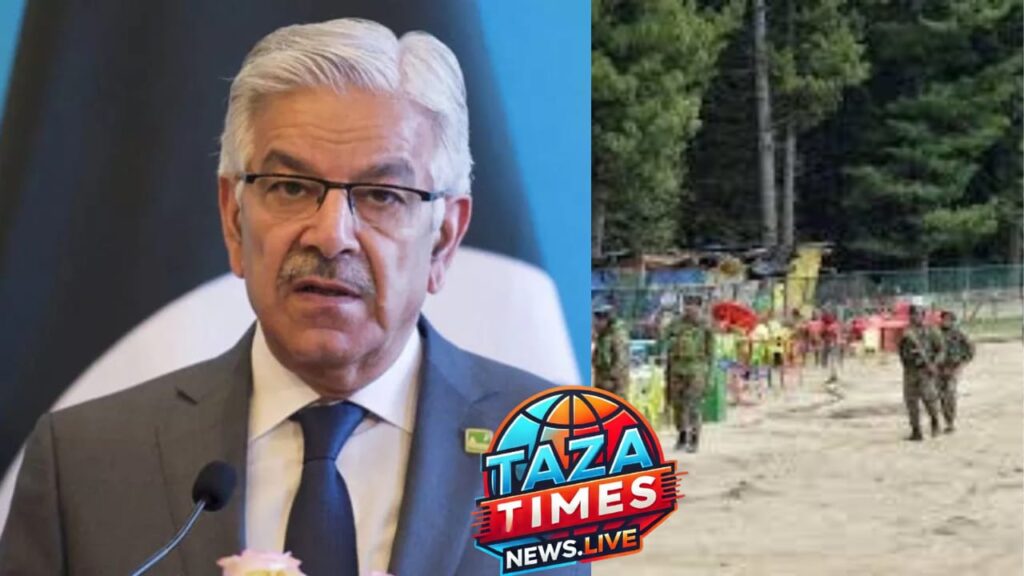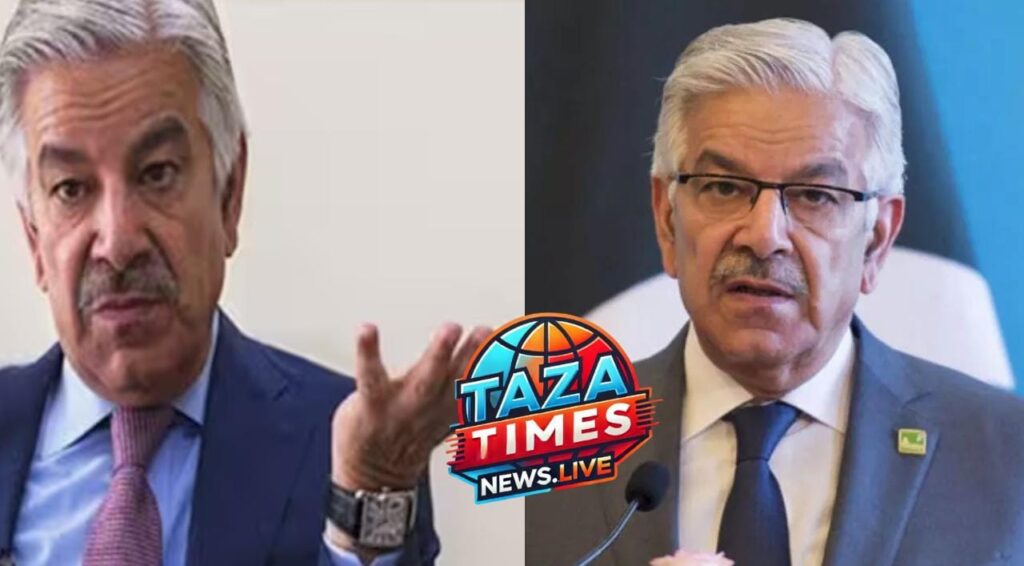Pakistan : Khawaja Asif, Pakistan’s Defence Minister, has warned of a “imminent incursion” by India following the fatal Pahalgam terrorist attack in Jammu and Kashmir, which killed 26 people, the majority of whom were tourists.
The terror assault, which took place on April 22 at Baisaran Meadow in Pahalgam, has been described as one of the worst in the region in recent years, bringing considerable condemnation both in India and beyond.

Pakistan had increased its military forces
Asif told Reuters on Monday that Pakistan had increased its military forces in response to what he characterized as a “imminent” threat from India. He stressed that Pakistan has taken “strategic decisions” to confront the situation and stated that the country was on high alert. In a sobering remark, Asif warned that Pakistan would only deploy its nuclear arsenal if there was a direct threat to its survival, emphasizing the gravity of the situation at hand.
Table of Contents
Gunmen opened fire on a group of tourists, including a Nepalese national, at around 2 p.m. in Pahalgam, sparking widespread fear. The attack has been attributed to cross-border terrorism, with many blaming Pakistani terror cells active in the region. India has been vociferous in accusing Pakistan of sponsoring terrorist groups, and the central government is allegedly poised to take severe action against what it sees as Pakistani-sponsored terrorism threatening peace in Jammu and Kashmir.

Political Debates
In India, the incident ignited heated political debates. Defence Minister Rajnath Singh met with Prime Minister Narendra Modi on Monday at the Prime Minister’s official residence to discuss the mounting security concerns raised by the attack. This happened just one day after General Anil Chauhan, India’s Chief of Defence Staff (CDS), briefed the country on actions being taken to combat the growing terrorist threat. Earlier, Singh chaired an all-party conference in Parliament to discuss the security situation.
Since April 23, teams from India’s National Investigation Agency (NIA) have been stationed at the incident scene to collect critical evidence. The Indian Army has also undertaken various search operations and is still on high alert in the region, with a focus on neutralizing the militants responsible for the attack.
Meanwhile, on April 23, the Cabinet Committee on Security (CCS) met to assess the situation. During its meeting, the CCS strongly condemned the incident, conveyed condolences to the victims’ families, and reaffirmed India’s commitment to combating terrorism. The committee also highlighted the attack’s apparent cross-border links, particularly in light of the recent peaceful elections and economic success in Jammu and Kashmir, which were seen positively for the region.
The Pahalgam incident sparked widespread protests in India, with Indians demanding tougher action against Pakistan for its involvement in aiding terrorism. As India steps up its security measures and diplomatic pressure on Pakistan, the situation in Jammu and Kashmir remains volatile, with the region’s destiny hanging in the balance.
you join our tazatimesnews Telegram Channel
you join our whatsapp channel
Next News Read : Vaibhav Suryavanshi jaw-dropping performance leads RR to an 8-wicket victory over GT.



